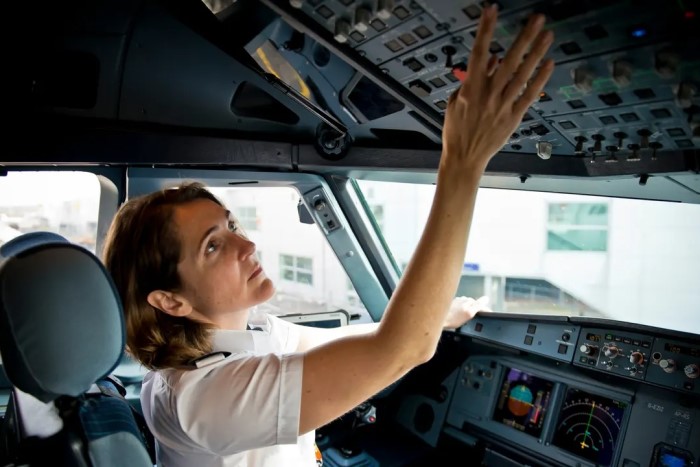Insight Into Becoming An Air Pilot
15 March 2023

For the final installment of our behind-the-scenes set of blogs looking at key areas within an airfield, we wanted to look at those who are always in the spotlight: the pilots.
Pilots play a crucial role in the aviation industry, from ensuring safe and efficient flights to providing exceptional customer service. However, many people may not be fully aware of the many responsibilities that pilots have beyond simply flying the aircraft.
That's why FlyDays.co.uk is excited to share some insights into what goes on behind the scenes of a pilot's day-to-day job.
In this blog post, we'll explore the pre-flight, in-flight, and post-flight procedures that pilots undertake, as well as the skills and training required to become a pilot, hopefully inspiring you to consider this as a career yourself.
- Pre-Flight
Pre-flight procedures are a crucial part of a pilot's job, as well as a legal requirement, that ensures the safety and efficiency of the flight. Before taking off, pilots must inspect the aircraft to ensure it is in proper working condition, including its mechanical and electronic components. They also check weather conditions and flight plans to determine the best route and altitude for the flight.
The list is extensive (way too long for us to put into this blog) and a good habit that pilots get into is audibly announcing each check as they move through the list, even when on their own. After that is done, it’s lights, camera and action!
- In-Flight
Once the flight is in the air, the pilot has many responsibilities to ensure a smooth and safe flight. During takeoff, the pilot will accelerate the aircraft to the appropriate speed and lift it off the runway. Then, the pilot will monitor the flight instruments and systems, communicate with air traffic control, and manage the flight route to their next destination.
And for those of you who are scared of flying, in particular when turbulence strikes, pilots are normally fully aware of where severe turbulence is and will do all they can to avoid it. If it is unexpected, they will slow down to help make the journey as smooth as possible.
It is always reassuring to know that pilots do not see turbulence as a big deal – it’s part of flying and very rarely causes any major problems. The planes are also put through serious testing during the design and build of them, putting them through much worse conditions than are in the sky.
- Landing and Post-Flight
When it comes to landing, the pilot must ensure that the aircraft descends and touches down smoothly and safely. The pilot communicates with air traffic control and adjusts the aircraft's speed and altitude as necessary. Nearly all major airports will have a guidance system to give them the correct descent profiles.
However, pilots are all initially trained using a visual approach with both the pilot and co-pilot monitoring their entry speed, height, and other systems to ensure a smooth touchdown.
After landing and taxiing to their designated parking zone, the pilot will complete a post-flight inspection, ensuring that the aircraft is secured and ready for the next flight.
- Skills and Training
Becoming a pilot requires a combination of technical skills, knowledge, and experience. Pilots must undergo rigorous training, including ground school, simulator training, and in-flight training. They must learn how to operate the aircraft and its systems, navigate and communicate with air traffic control, and manage unexpected situations.
Pilots must also obtain the appropriate licenses and certifications, such as a Private Pilot License (PPL), Commercial Pilot License (CPL), or Airline Transport Pilot License (ATPL). Ongoing training and education is required to maintain these licenses and stay up-to-date on the latest technologies and regulations.
In most countries, commercial pilots have to undergo intense training in a simulator twice a year – putting them through various emergency scenarios so they’re prepared for any incident that might come their way. Now we understand why so many pilots seem so calm and collected!
- Conclusion
Pilots are essential to the aviation industry, and their job is much more complex than just flying an aircraft. While the job can be challenging, it also comes with many rewards and opportunities for personal and professional growth. These people literally get to see the world!
Whether you are a pilot or a passenger, the dedication and expertise of pilots make air travel possible for all.
If you've been inspired by our insights blog into the world of the pilot, and want to start your journey towards becoming a pilot, FlyDays.co.uk can help you get started.
We offer a range of flying lesson packages that can help you learn the basics of flying and take your first steps towards becoming a pilot. Our expert instructors will guide you through the essentials of operating an aircraft and give you the experience of flying for yourself.
Visit our Flying Lessons page today to browse and book from our complete selection of packages that are available to book through Gift Vouchers on the FlyDays website.



